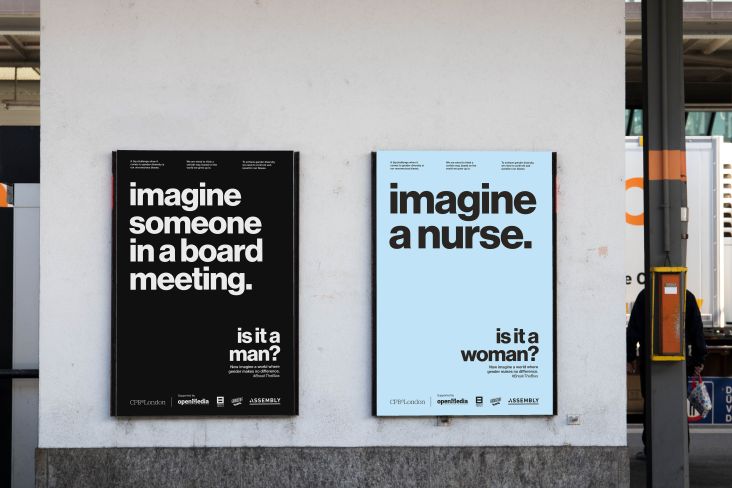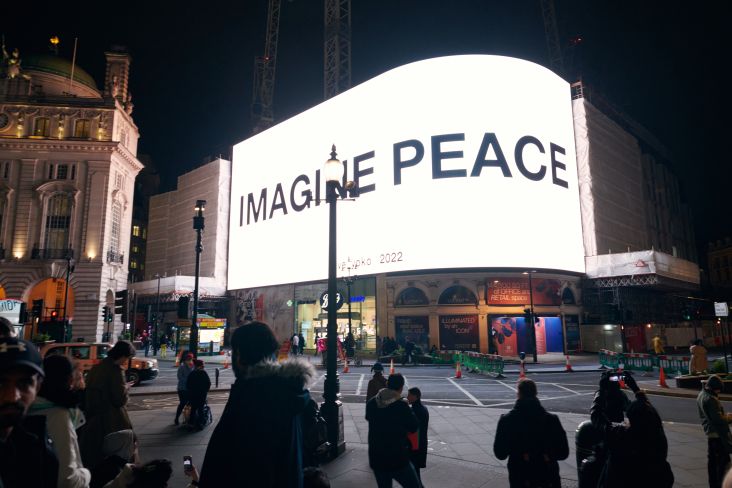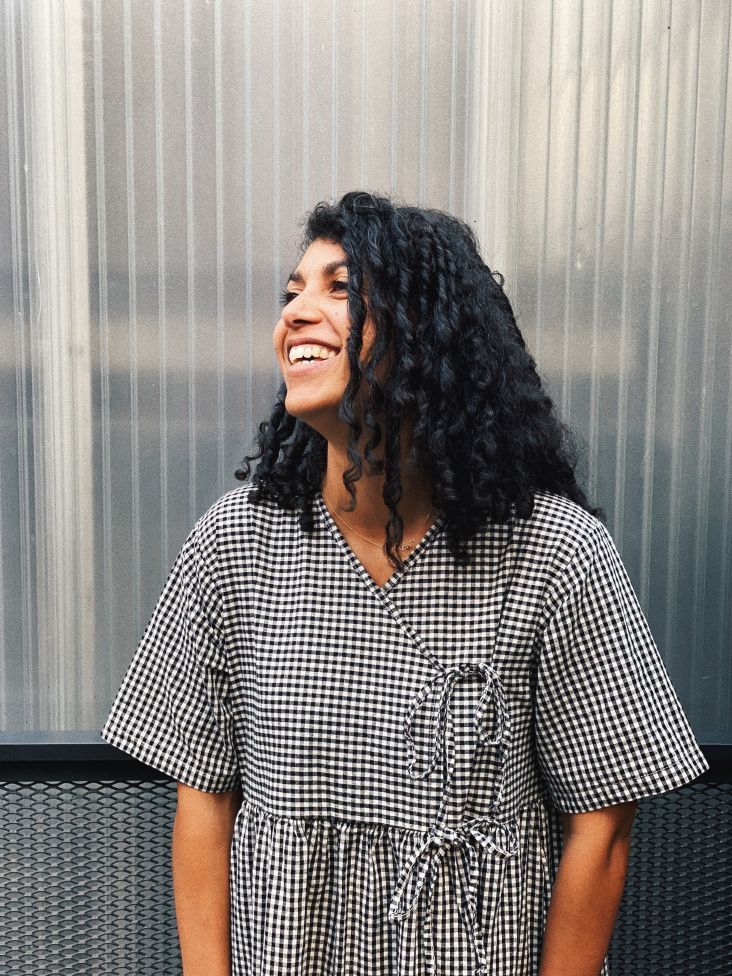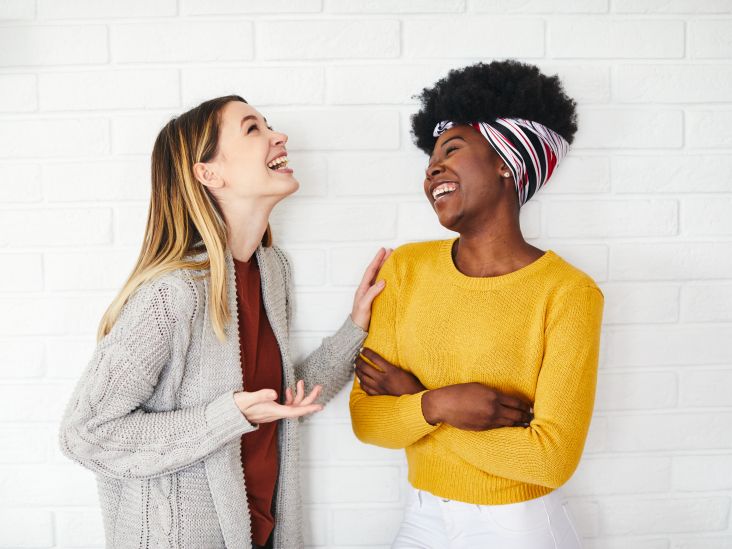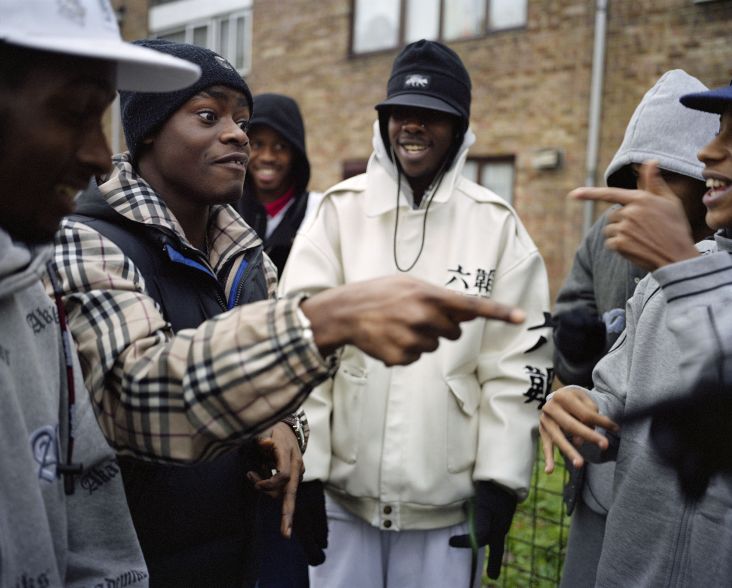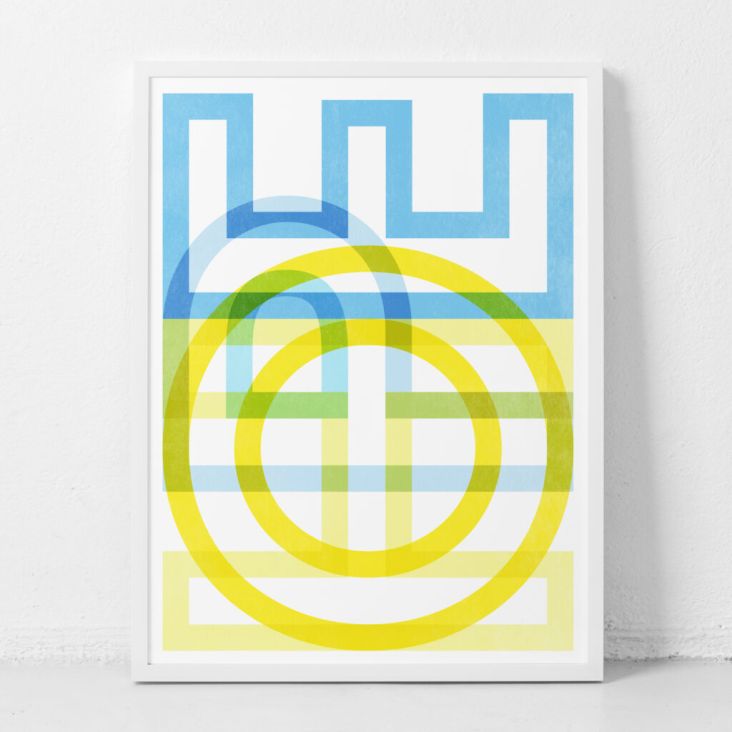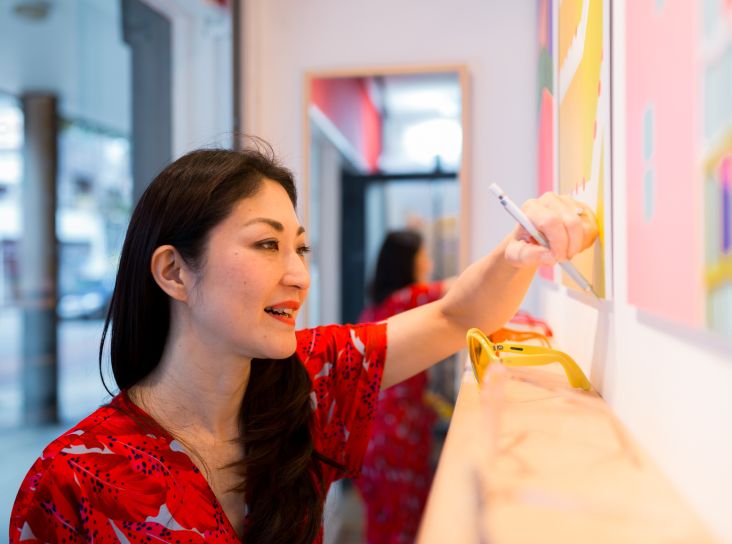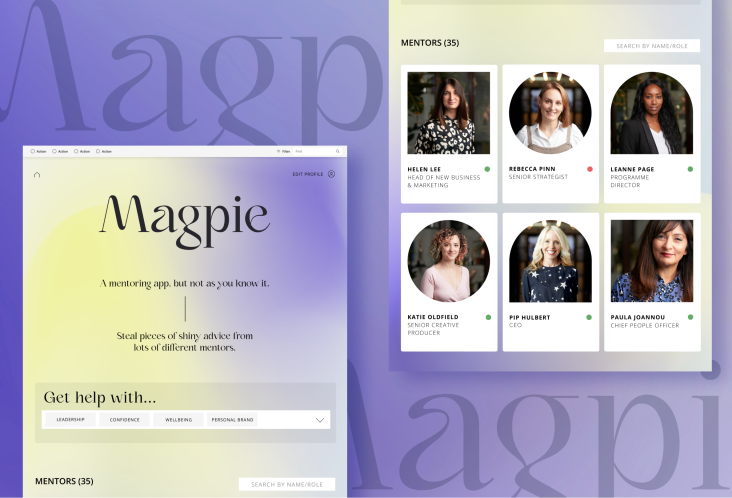The Curl Talk Project features portraits and stories of diverse women who have curly hair
What does it mean to have curly hair in a society where straight hair is still considered a condition for beauty? That's the question posed at a new outdoor exhibition launched today at King's Cross in London that shares the realities of over 30 women from around the world who have each felt pressured to look a certain way.
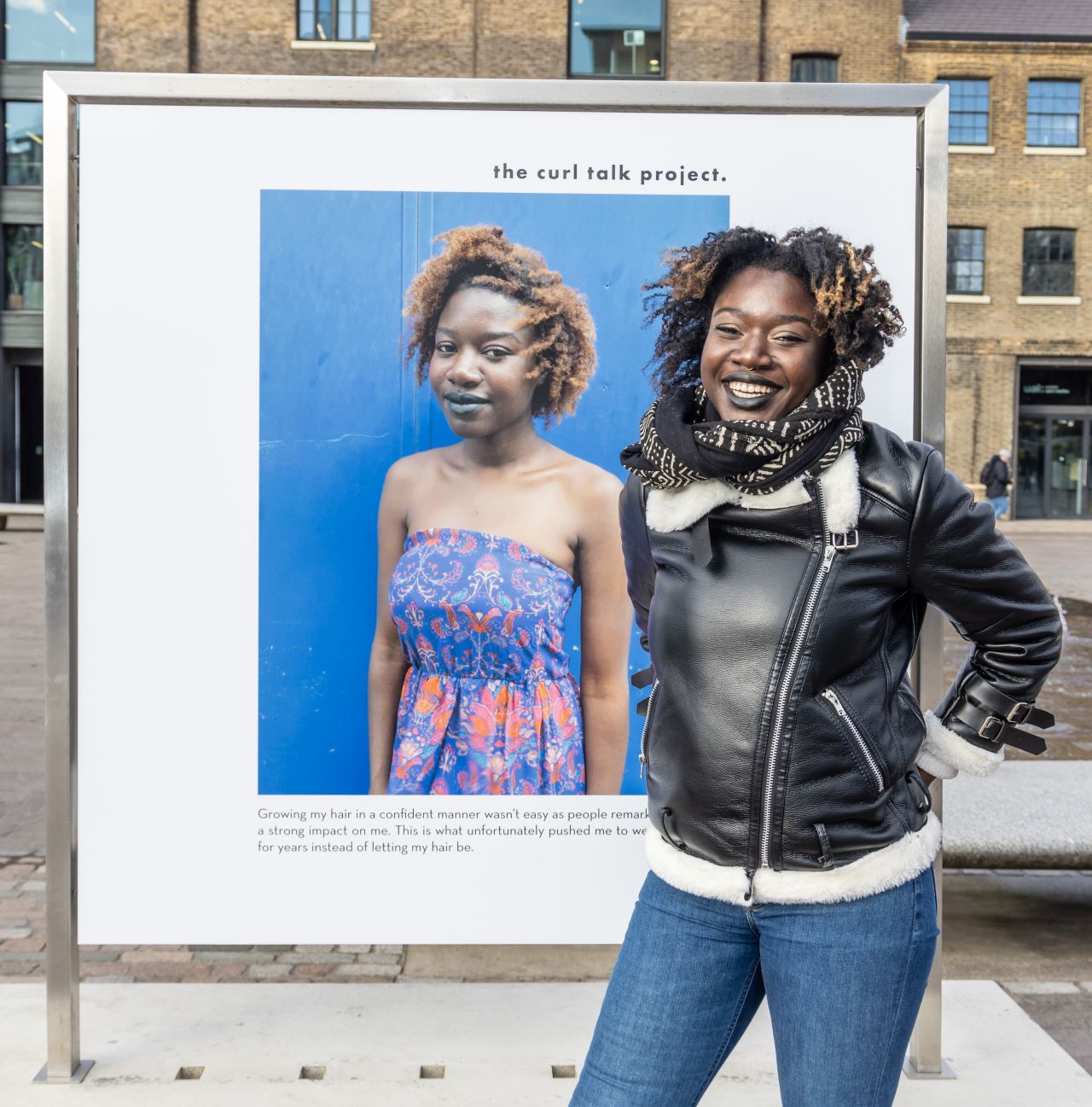
Aude, one of the women to be featured in The Curl Talk Project, stood in front of her own portrait
Featuring portraits and insightful stories, The Curl Talk Project is a show that begins at Granary Square today to mark International Women's Day and coincides with Women's History Month. It takes an intimate look at the lives of curly-haired women everywhere and from a diverse range of backgrounds. The latest in a series of open art on the streets of N1C as part of The Outside Art Project, the exhibition is made up of 30 double-sided benches located throughout the open spaces and public squares of King's Cross, turning it into one of the largest outdoor gallery spaces in London.
The Curl Talk Project was founded in 2017 by Johanna Yaovi, and diversity and representation have remained at the core of the project's values. As a mixed-race woman, Johanna has always been interested in diversity, culture and representation. "Very often an indication of people's background and ancestry, curly hair has long been seen as different, unmanageable, unprofessional and unpresentable," she says. "This mindset, which is sadly still deeply ingrained in society, continues to impact several generations of women who have felt different because of their hair. I am delighted that these women have the chance to tell their stories and can begin to challenge society's definition of beauty."
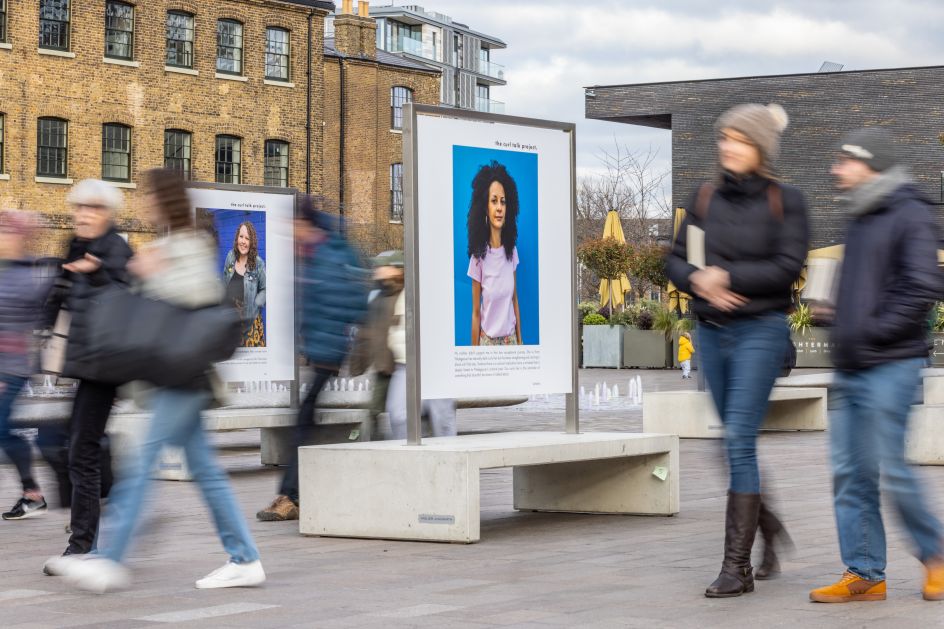
The Curl Talk Project exhibition at Granary Square, King's Cross in London
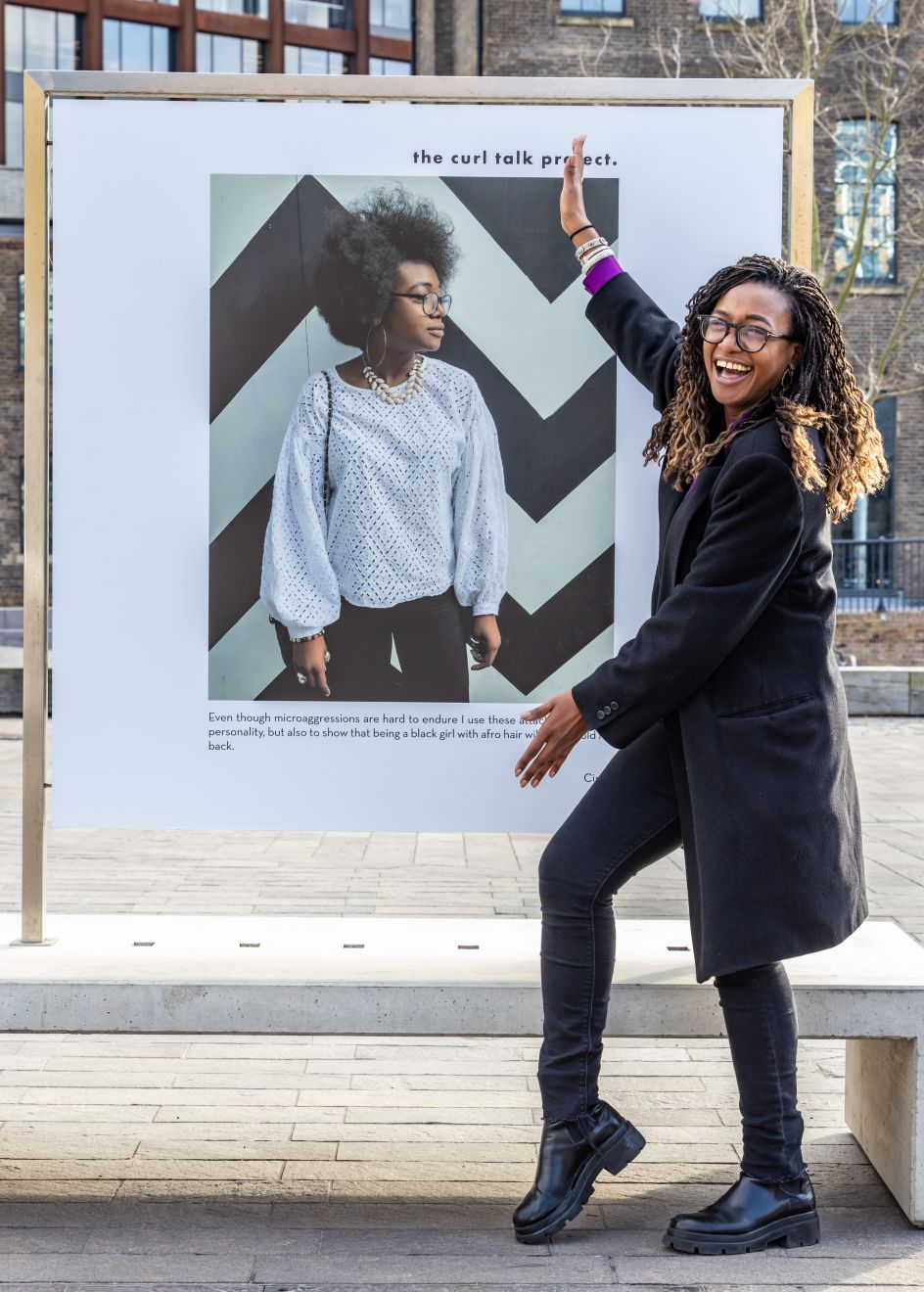
Cindy, one of the women to be featured in The Curl Talk Project, stood in front of her own portrait
Of one of the women featured, we hear from Aude, who says: "I love my hair, I love to take care of it, play with the texture and the colour as much as I can. I use my hair to dismantle decades of negative messaging and wrong ideas coming from my family or society itself: black hair doesn't grow, black hair can't be beautiful unless it's long with loose curls. My mother always relaxed her hair, and she decided to relax mine when I was only eight years old. I was happy at the time as I could finally have hair similar to my white friends.
"But after a burning accident, I had to big chop. Confidently growing my hair wasn't easy as people's remarks would strongly impact me. Unfortunately, this is what pushed me to wear extensions for years instead of letting my hair be. Progressively, I started to feel like wearing extensions meant I wasn't being true to myself. I almost felt like I was nothing but a lie. Youtube was a revelation to me as it encouraged me to "educate" myself about my hair, helping me to love it progressively.
"However, it's important to mention that in the natural hair movement, most women we see are light-skinned with loose curls. I can imagine that women with darker complexions and very kinky hair struggle to feel represented within this movement. We still have a long way to go regarding textured hair acceptance, as society is still telling us that long straight hair is the norm and is the condition of beauty. This, and nothing else."
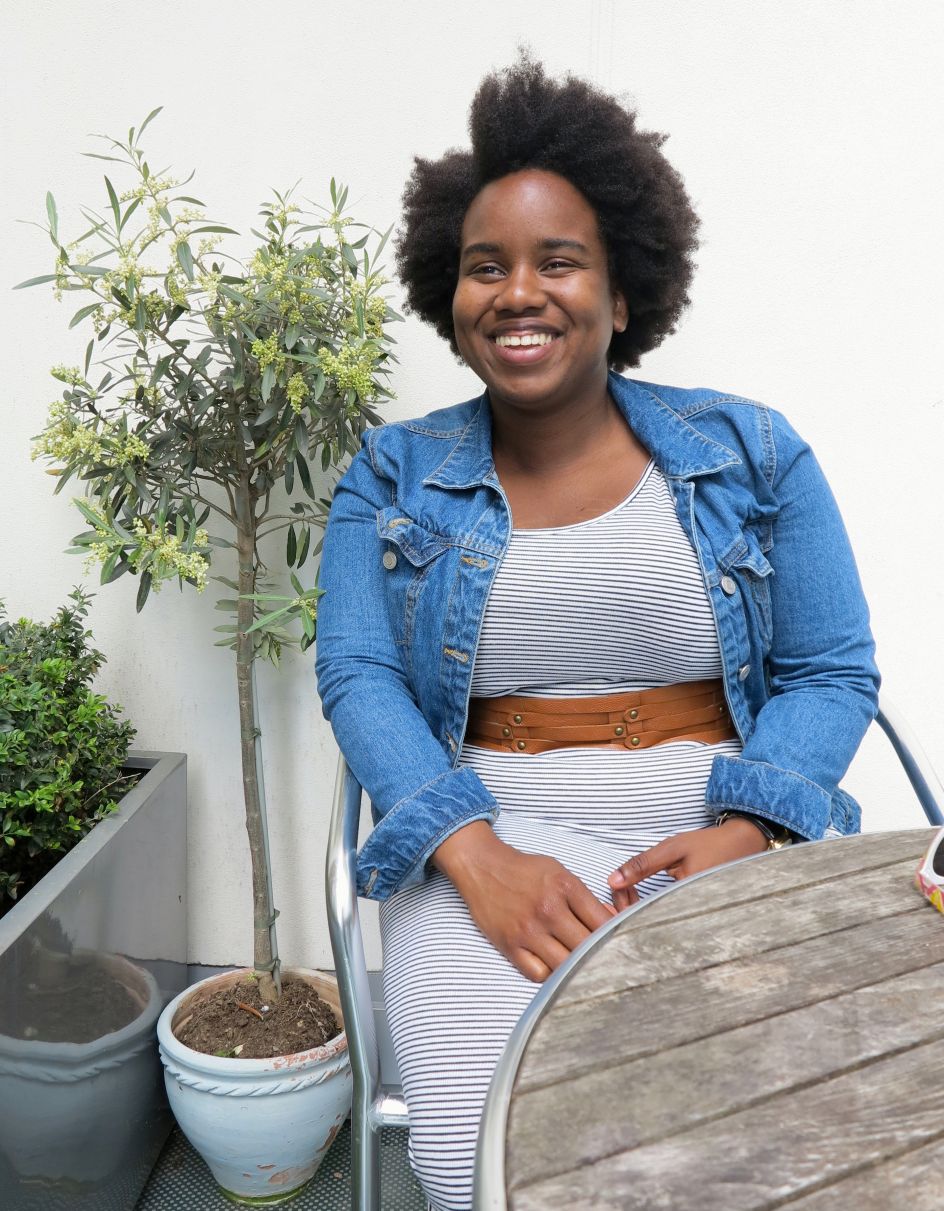
Elsie
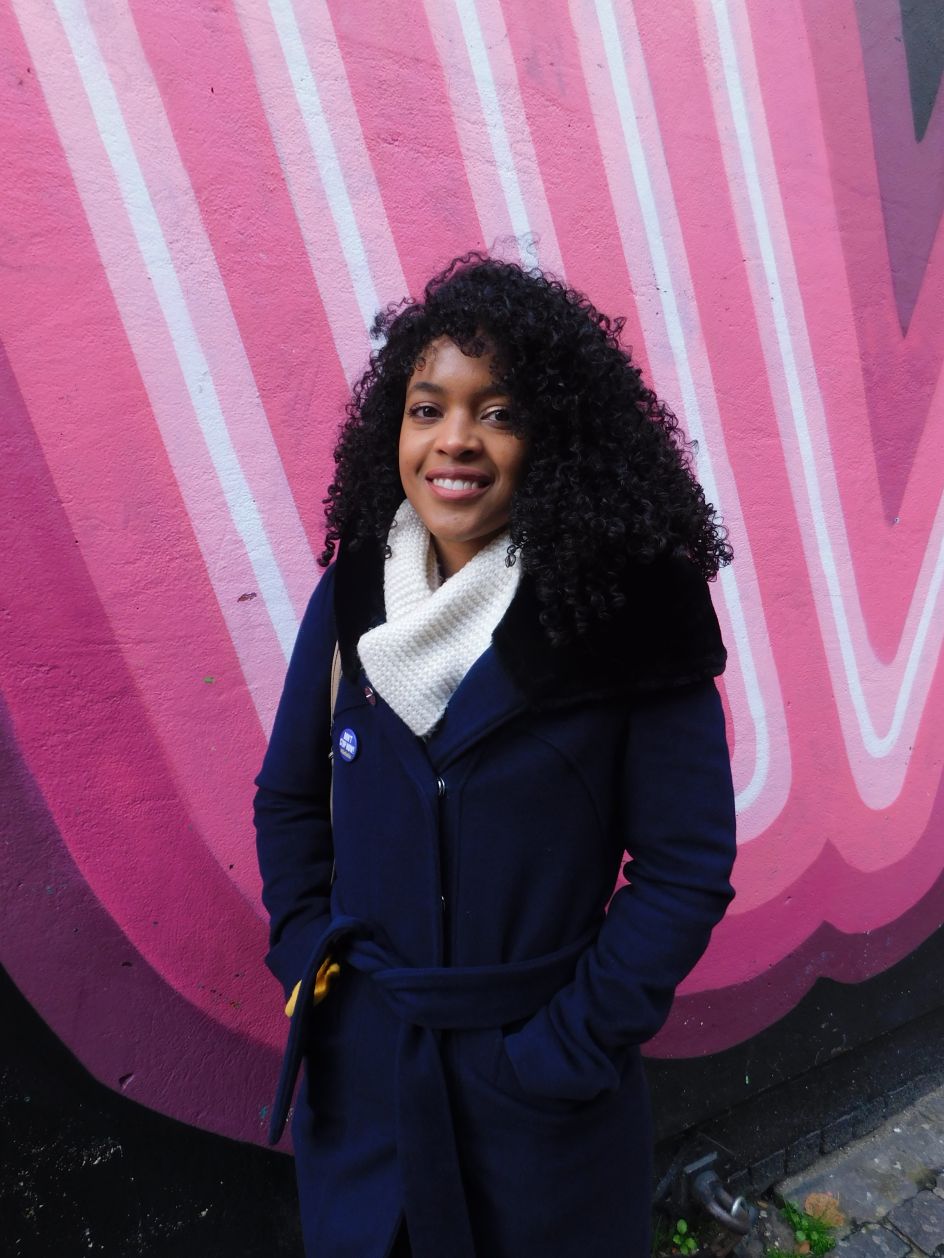
Sarah-Angelique
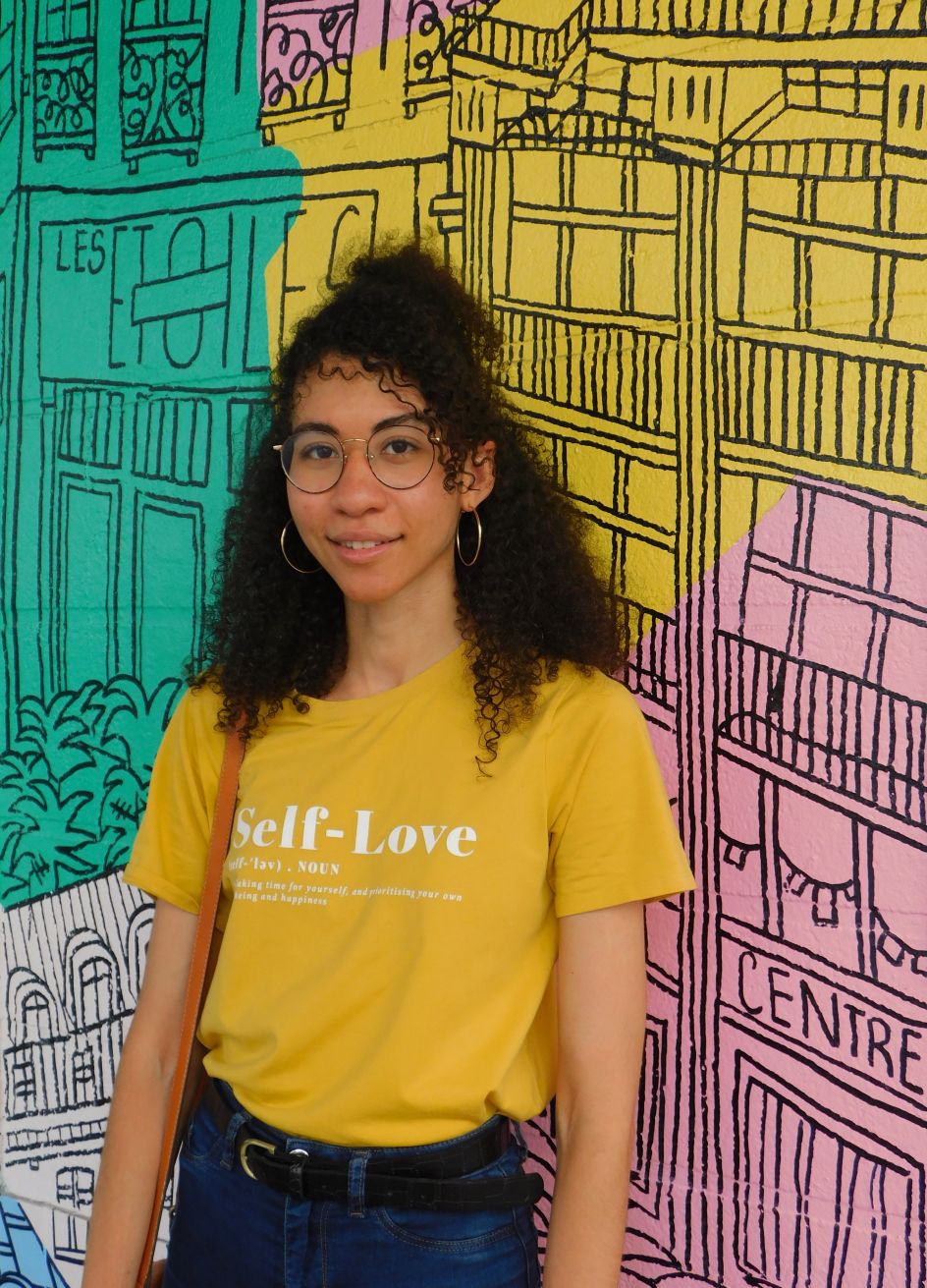
Laura
In another portrait and story, we meet Segolene: "I feel like my curls make me look but also feel different. It adds this little 'plus' and enables me to have a less serious, formal look. I don't wear very colourful clothes, so I believe my hair helps me stand out. I never had anything against my curly hair, but I used to relax it anyway, without really knowing why I was doing it. The fear not to fit in, maybe?
"As a young girl, I knew that curly hair wasn't seen as a beauty standard or the norm. On the other side, straight hair was a prefered characteristic, or should I call it a must-have? Even though I was relaxing my hair, I kept associating curls with kindness and softness, some of the greatest personality traits I believe a human can have. My parents never told me that I had great hair but never told me the opposite either.
"However, I saw my mother straightening hers all the time, as having curly hair in Lebanon isn't well perceived. My mother not saying anything about my hair seems like a neutral action, but seeing her altering her hair every day kept sending me mixed messages. Should I accept my natural hair? Should I not? Noticing more women rocking their curls helped me greatly in my hair acceptance journey. Progressively, I started to think that I, too, could look good with my naturally curly hair."
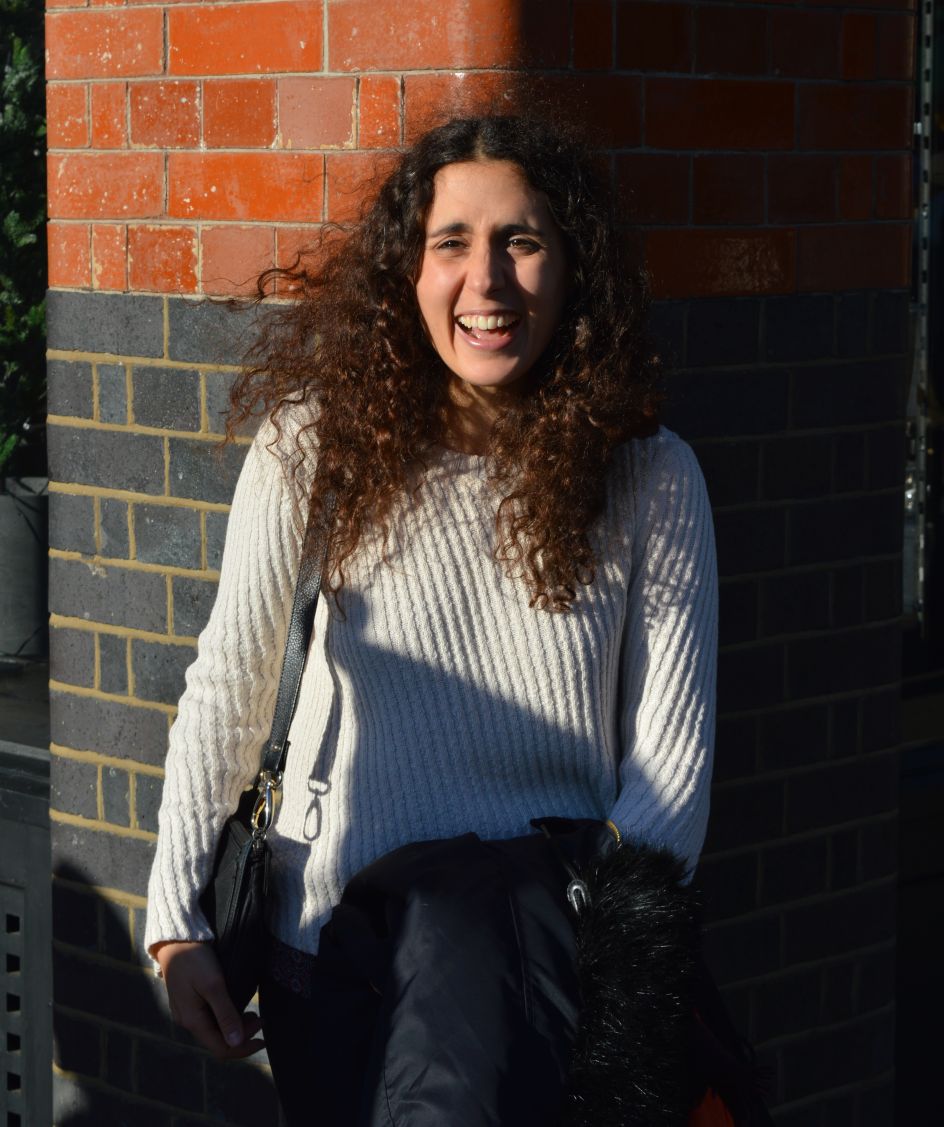
Segolene
The Curl Talk Project is on display at Granary Square in London's King's Cross from today, Tuesday 8 March to mark International Women's Day and runs until Sunday 10 April. To find out more, visit www.thecurltalkproject.com.
Johanna, the founder of The Curl Talk Project, adds: "It is clear that women and their achievements should be celebrated every day but International Women's Day is a great opportunity to shine a light on them even more. It enables us to take up space and share strong messages with the world as to how women are redefining society." She believes the King's Cross exhibition is a "great way to show that whatever your circumstances, you deserve to be seen, heard and given a seat at the table."

















